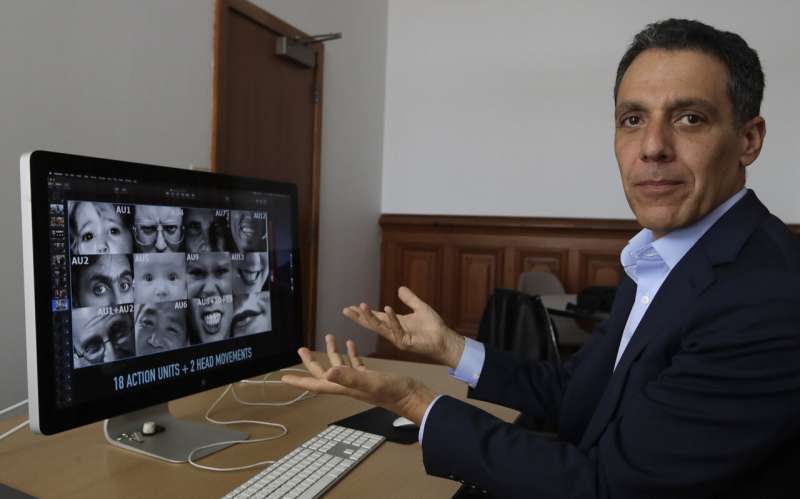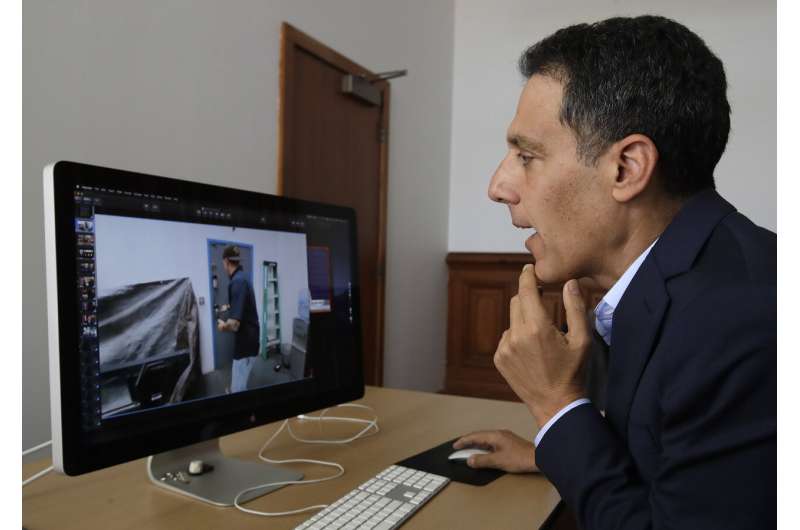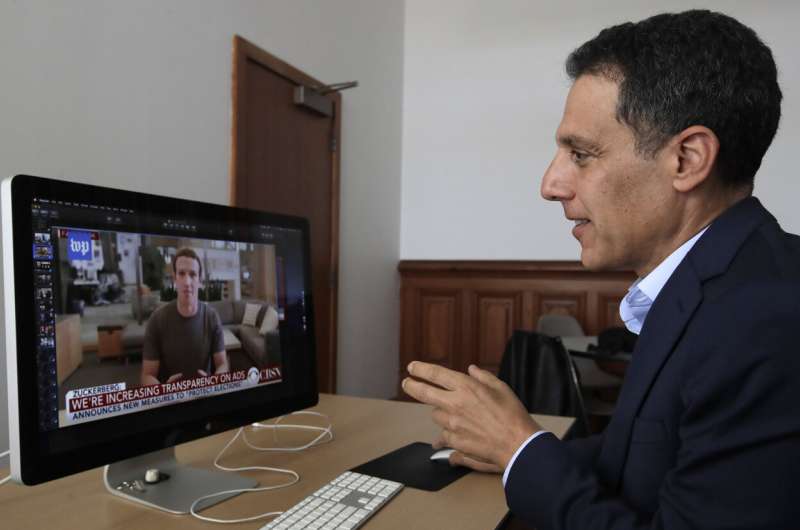In this Monday, July 1, 2019, photo Hany Farid, a digital forensics expert at the University of California at Berkeley, gestures as he views video clips in his office in Berkeley, Calif. Dumb fakes, shallow fakes and cheap fakes, experts are still undecided on how to label the poorly made manipulated videos being viewed millions of times and even spread by high-ranking politicians. But they are sure that social media users will see much more of these videos ahead of the U.S. 2020 presidential elections. (AP Photo/Ben Margot)
Sophisticated phony videos called deepfakes have attracted attention as a possible threat to election integrity. But a bigger problem for the 2020 U.S. presidential contest may be "dumbfakes." These are simpler and more easily unmasked bogus videos that are cheap and easy to produce.
Deepfakes require sophisticated artificial intelligence, audio manipulation and facial mapping technology. But dumbfakes can be made simply by varying the speed of video or selective editing. They don't require expert skill to create and can be convincing to the unsuspecting, which makes them a much more immediate worry.
The latest example is a slowed-down video of House Speaker Nancy Pelosi. The video, which made it seem like she was slurring her speech, was shared more than 2 million times. Experts say there's more to come.
-
In this Monday, July 1, 2019, photo Hany Farid, a digital forensics expert at the University of California at Berkeley, studies a video clip in his office in Berkeley, Calif. Sophisticated phony videos called deepfakes have attracted attention as a possible threat to election integrity. But a bigger problem for the 2020 U.S. presidential contest may be "dumbfakes." These are simpler and more easily unmasked bogus videos that are cheap and easy to produce. . (AP Photo/Ben Margot)
-
In this Monday, July 1, 2019, photo Hany Farid, a digital forensics expert at the University of California at Berkeley, studies a video clip of Facebook CEO Mark Zuckerberg in his office in Berkeley, Calif. Sophisticated phony videos called deepfakes have attracted attention as a possible threat to election integrity. But a bigger problem for the 2020 U.S. presidential contest may be "dumbfakes." (AP Photo/Ben Margot)
© 2019 The Associated Press. All rights reserved.


























